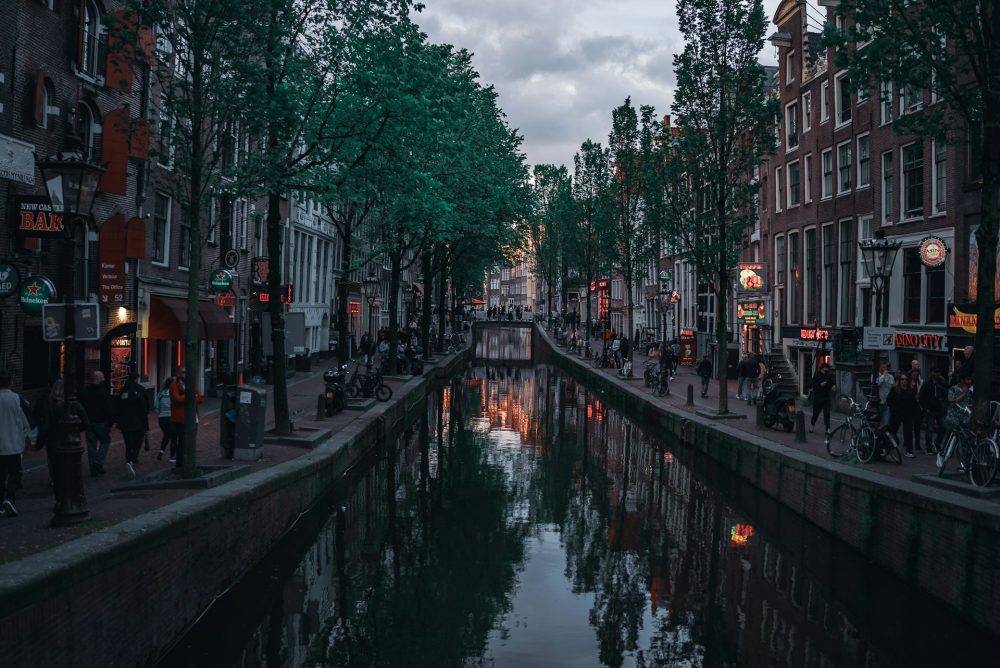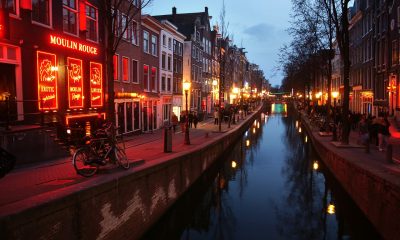Cannabis
Amsterdam Weighs Resident-Only Cannabis Sales to Curb Drug Tourism
Amsterdam authorities plan to enforce the I-Criterion, limiting cannabis sales in coffeeshops to Dutch residents to curb drug tourism, especially in the Red Light District. Supported by Mayor Halsema, PvdA, and VVD, critics warn it may harm businesses and spur black markets, as seen in Maastricht, where crime fell but illegal trade persisted.

Amsterdam authorities want to end mass tourism, the sole purpose of which is to smoke cannabis. They’re targeting the I-Criterion (ingezetencriterium). It’s a simple rule: only Dutch residents can buy cannabis in coffeeshops. Mayor Femke Halsema and the PvdA (Labour Party) see this as a way to reduce nuisance, especially in the city’s famous Red Light District (Wallen).
The city is looking to Maastricht, where this rule has been in effect since 2012. Will the Dutch capital repeat this step? Experiences in Limburg show that while the intentions are good, the consequences for residents, businesses, and security are complex.
What is Criterion I and who supports it in Amsterdam?
The I-Criterion is a legal requirement. Coffeeshops must check IDs. Sales are only permitted to individuals registered in the Netherlands .
Political Turmoil in Amsterdam
Although this idea first emerged in 2021, it’s now gaining momentum. The largest coalition party, the PvdA, included the proposal in its election platform. The VVD also supports it. Politicians aim to curb the burden of “drug tourism.”
Not everyone is convinced, however. D66 opposes the plan. GroenLinks remains silent.
Businesses Take Note: “This will ruin the atmosphere in Amsterdam,” says Joachim Helms, a representative of the coffee shop industry. He believes politicians don’t understand the problem.
Negative Lessons from Maastricht: Black Markets and Layoffs
Entrepreneurs from Maastricht strongly advise Amsterdam against introducing the I-Criterion.
What happened in Maastricht after 2012?
The Rise of Street Trading: Stephanie Korsten, owner of four coffeeshops in Maastricht, puts it bluntly: “These people are there anyway. They want it.” Tourists who were denied access to legal establishments ended up directly on the street.
Lack of Control and Tension: Bond van Cannabis Detaillisten (BCD) warns: Wallen is already an extraordinary danger zone . Street trading has escalated. Incidents are a daily occurrence, and police are struggling to control them.
Job Loss and Discrimination: In Maastricht, Criterion I has resulted in the dismissal of 200 to 300 coffee shop workers . Turnover has plummeted. Businesses report discrimination and increased tensions at the door during ID checks.
Fact: Displacing demand from legal circulation doesn’t eliminate it, but rather moves it into the gray market. There will always be a dealer willing to serve the foreign tourist.
Fewer incidents: Official figures from Maastricht
Maastricht also has successes to show. The first criterion was painful, but it brought results in the statistics.
Crime Down: Official figures show drug incidents have fallen by two-thirds since 2012
Less Nuisance: A study commissioned by the municipality of Maastricht (Breuer & Intraval) confirms that visible nuisance (overload) has decreased significantly, although there was an initial increase. Some residents feel the appearance of the streets has improved.
The problem remains: Despite this, street dealers continue to operate in the city center. Authorities also regularly shut down drug houses .
The Big City Dilemma: Warnings for Amsterdam
Amsterdam is a global metropolis. The warnings from Maastricht are especially important for it.
Limburg entrepreneurs predict that Amsterdam will experience similar problems, but on a larger scale
Fallacy: Joachim Helms believes the argument that tourists are leaving is completely false
Cannabis tourism has already declined because the number of coffeeshops in the city center has drastically decreased . Tourists will come anyway because Amsterdam is simply a beautiful city.
Legal Experiment: It’s worth noting that Maastricht is participating in a national experiment. The marijuana sold there comes from legal, controlled crops. The municipality claims that this hasn’t contributed to the growth of street vending.
Key Findings and Dilemma Summary
The decision for Amsterdam is difficult.
Is it worth reducing the visible nuisance and lowering official drug crime (as in Maastricht)?
Is the city willing to pay the price in terms of hundreds of job losses, social tensions, and trade being pushed out of regulated coffee shops and onto the black street market?
The issue of Criterion I is still open. The final decision will be made after the next municipal elections in Amsterdam.
__
(Featured image by Omar Ramadan via Unsplash)
DISCLAIMER: This article was written by a third party contributor and does not reflect the opinion of Born2Invest, its management, staff or its associates. Please review our disclaimer for more information.
This article may include forward-looking statements. These forward-looking statements generally are identified by the words “believe,” “project,” “estimate,” “become,” “plan,” “will,” and similar expressions. These forward-looking statements involve known and unknown risks as well as uncertainties, including those discussed in the following cautionary statements and elsewhere in this article and on this site. Although the Company may believe that its expectations are based on reasonable assumptions, the actual results that the Company may achieve may differ materially from any forward-looking statements, which reflect the opinions of the management of the Company only as of the date hereof. Additionally, please make sure to read these important disclosures.
First published in FaktyKonopne. A third-party contributor translated and adapted the article from the original. In case of discrepancy, the original will prevail.
Although we made reasonable efforts to provide accurate translations, some parts may be incorrect. Born2Invest assumes no responsibility for errors, omissions or ambiguities in the translations provided on this website. Any person or entity relying on translated content does so at their own risk. Born2Invest is not responsible for losses caused by such reliance on the accuracy or reliability of translated information. If you wish to report an error or inaccuracy in the translation, we encourage you to contact us.

-

 Crowdfunding2 weeks ago
Crowdfunding2 weeks agoEvenFi Launches Run-Off Service to Protect Investors as Crowdfunding Platforms Exit
-

 Africa3 days ago
Africa3 days agoTunisia Holds Interest Rate as Inflation Eases, Debate Grows
-

 Crypto1 week ago
Crypto1 week agoEthereum’s Growing Capacity Puts Pressure on Layer 2 Platforms
-

 Cannabis5 days ago
Cannabis5 days agoCannabis and the Aging Brain: New Research Challenges Old Assumptions















